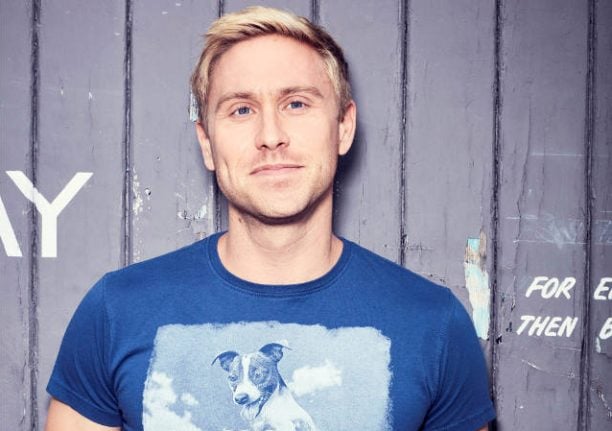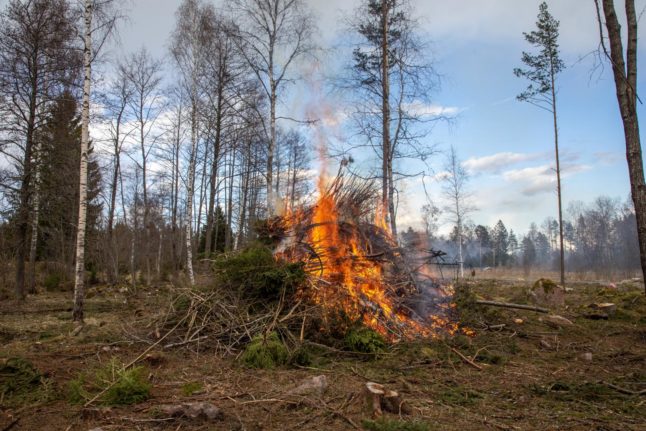You're coming to Scandinavia in June, are you excited?
Yes, I'm incredibly excited. I know very little of Europe and it's that funny thing that in stand up I've travelled to Australia, America, Hong Kong, Dubai, all these places, and I've never been to Europe which is closer.
I did some gigs in Oslo two years ago and I absolutely loved it. I met these guys at The Montreal Comedy Festival and they asked me if I want to do gigs in Europe, I said 'Yep', and that was that. So yeah, I'm really looking forward to it.
Also, because we're doing really small venues and going to all these different exciting places, it's the best thing in the world because I get loads of material out of it just from being there. There's something about putting yourself in a different situation, adding the conversation and new cultures, new people, having new experiences, it's just so perfect for stand up.
You've been touring for three months now – usually with only a day's break between shows – that must be really challenging and exhausting?
Yeah, but it's great fun as well. We've been so excited about travelling, doing the job you love. The fact that we could do these massive venues in England, and there’s like 15,000 people there, laughing at you, it's just incredible. And then the very fact that you get to go to America and there's 400 people waiting for you there at a gig in New York, it's amazing, really kind of pinch yourself stuff. To travel, doing the job you love and doing a show that I really enjoy, having people there at the end… All the travelling is worth it when you do the gigs.
.jpeg)
How do you keep up with the pace of the schedule and stay fresh for every show?
I slaughter a goat and I chant to a higher power… I'm joking.
We've got various vitamins, Red Bull and all this kind of stuff. Coffee, lots of coffee, and reading lots of papers. The main thing is it's just the adrenaline of doing a gig, there's nothing quite like that, so as soon as you walk on stage you're like 'Yeah, I'm fine', and then afterwards you're like 'Ah, I’m knackered…' Then you hear a voice in your head going 'Come on Rus, we've got to get to China. OK, let's go to China!'
You're currently in LA. Are you relaxing before you travel to Canada?
No, I'm doing The Late Late show with James Corden to promote the US tour, so I'm just doing gigs – interviews, podcasts, stand up shows and stuff like that – around the city.

Does your act change depending on the country you're performing in?
Definitely. It has to evolve. For example when you're doing small gigs you can smudge it around, chat with the crowd, improvise. I tend to improvise loads, change stuff, doing things in different orders. But when you're doing [a show with] 15,000 people in England, it has to be this concrete monologue, which is great. But then there's something quite nice about getting down and dirty, chatting to the crowd, which you just can't do in a big venue. Also I'll be travelling all around these places and experiencing things, so it makes sense that I'll chat [with people].
I'm recording a special at the end of the year and I just wanted to have a more global perspective on stand up, rather that just 'this is funny in England'. I want to find out what's funny in Sweden, in China, America, Australia. There's so many things that connect us, and in a time of division, I don't know how it is in Scandinavia, but in England and America it feels like our media exist at the minute only to divide us, which is incredibly frustrating, because we've got so much in common.
You said you like to improvise at smaller venues, is that what Scandinavian audiences have to look forward to? Improv and some localized jokes?
Yeah, I have about two hours of material to pick from and I think we're doing an hour show, and I'll be walking around during the day so I’ll have plenty to pick from to chat about.
You said you've been to Oslo, are there any other Scandinavian countries or cities you've visited before?
I went to Stockholm to visit a good friend of mine, and I've been over to see him and his family, but that's it.

Which city are you looking forward to visiting the most?
I'm really looking forward to Bergen. My friend told me that it's absolutely wonderful there and quite hippy, a bit like Brighton in England, so I'm looking forward to that. But otherwise, I don't really have a specific place, just the buzz of it all, the madness of travelling, doing comedy to people who are listening in their second language.
READ ALSO: Norway's tourism boom shows no sign of slowing down
You do actually have time for a bit of tourism as well?
Yeah… What's the big ship in Stockholm? Vasa? What I found was really funny about it was the drawings on the ship that were meant to frighten the other armies and some of the drawings on there were little babies! I think that was funny, if the other armies were like 'Oh my god they've got kids!'
Surely you show knives, angry warriors and big strong muscular men, not tiny cherubs? I think it must have been an incredibly funny moment when it was just like 'look at the size' and then it just went over. You can imagine everyone gasping and then this one dissenting voice that started to laugh…
READ ALSO: The Local steps on board the Vasa
And, well, this is what I'm trying to do with every place that I get to. I just wander around and pick stuff up. Then normally the first 20 minutes of the show tends to be chatting about what you’ve seen during the day and then it kind of just goes from there, and I've got material to link into it.
Some reviews from the UK claim you have become somewhat darker and angrier, why is that do you think?
It's sort of a response to the madness of the world. I did ten series of a satirical show called Good News and it's quite difficult to read the newspapers and not get angry. I made an effort this year to try and talk about things I care about. I tried to talk about how difficult it must be to be a kid these days, because of the pressures of social media, pornography, the lack of leaders in the world and why are there no dissenting voices – where's our Ghandis, our Martin Luther Kings?
It was a sort of passionate call to arms to try and recalibrate British society. Certainly in England I don't think we've ever been thicker and more passive, and it's really frustrating. So it was a call to arms to be better than we are rather than fixating on Made in Chelsea or the Kardashians, and to try and get back to things that we do find fascinating.
So you're trying to promote some action from people?
Well, just to like each other again, because fundamentally we're good people. Particularly when you look at Brexit – it showed a massive divide in our country, and it's really sad. A lot of people voted to leave Europe, race and hate crimes are up 41% after Brexit, so as a comedian you try to make sense of this, because it's like Brexit gave legitimacy to that kind of rabid nationalism and I hate that. I just don't get it, like 'this is my country!', well you were born here by chance. It's not like you were in your mum's fanny going 'take us up towards Dover!', wherever you happen to land, you land.
So I was building on those feelings and it worked out really well. And talking about the NHS, people just went crazy for it and absolutely loved it, because it's one of the few things we can be proud of in England. But particularly our right wing papers are trying to rip it to pieces and destroy it. That really angered me, because I love the NHS and my girlfriend is a doctor, so I can see first hand the way we're being misrepresented. So I just decided to figure out a few things.
But it was still mixed up because I'm quite a naturally happy person, but there were bits of the show that were certainly really furious and really angry, but angry at things I think matter.
Final question: after finishing your five month tour, are you looking forward to some time off or will it be straight back to work?
After the tour I have a new TV show and that runs until Christmas. Then I have my stand up special at Christmas and then I’m going on a holiday… I’ll be doing nothing.
Russell Howard's Scandinavian tour dates for 2017:
June 7th: Stockholm, Sweden (Rival)
June 9th: Gothenburg, Sweden (Lorensbergsteatern)
June 10th: Oslo, Norway (Folkteateret)
June 11th: Stavanger, Norway (Stavanger Hall)
June 13th: Bergen, Norway (Ole Bull)
June 14th: Trondheim, Norway (Byscenen)
June 15th: Tromso, Norway (Kulturhuset)
June 16th: Copenhagen, Denmark (Bremen Teater)



 Please whitelist us to continue reading.
Please whitelist us to continue reading.